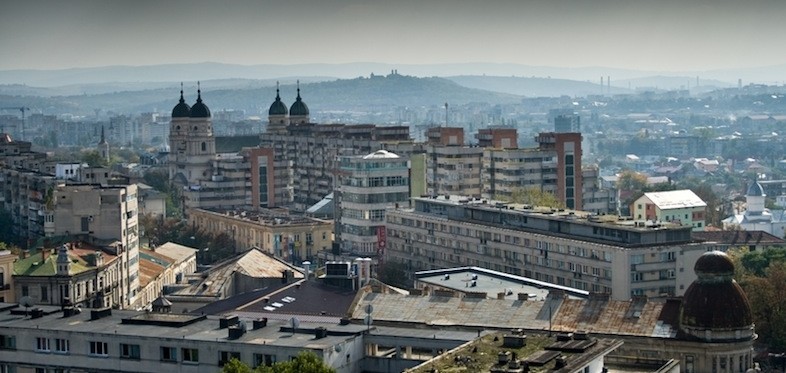How to Protect Energy Consumers in Romania
To implement a functioning single European market in the energy sector, it is essential to empower consumers. But many countries in Europe lack the right institutional framework for this. A glance at Romania.
As far as the energy sector is concerned, the single European market is at risk of failure because, among others, consumers are neither embracing the project nor are they convinced of its benefits. In response, the European Commission recently launched a new policy initiative, the “new deal” for energy consumers. It aims to transform the market so as to better serve the interests of consumers. But are the right institutions in place at the national level to bring about such a change of mentality and empower consumers? In Romania, we still have a long way to go.
In brief, the “new deal” for energy consumers, though not yet a mandatory piece of legislation, hints at policies supported by European authorities: Minimum information standards for both energy bills and advertising materials will be rolled out across the EU, and the user-friendliness of energy bills should be improved.
Furthermore, each energy consumer is to have access to verified and independent energy price comparison tools and close to real-time data on their consumption. Demand flexibility mechanisms such as dynamic tariffs will enable small consumers to take advantage of energy price fluctuations and adjust their consumption patterns accordingly.
Romanian energy policy breeds economic inefficiency
In Romania, consumer protection has so far taken a very basic form: regulated end-user prices for all domestic energy consumers. This policy, which is incompatible with a liberalized and unified European energy market, has resulted in the country having the lowest end prices (including taxes) in the EU for domestic gas consumers and the fifth lowest for electricity. The current arrangement is discouraging energy savings, breeds economic inefficiencies and raises equity concerns, e.g. protecting all household consumers equally, including those who can afford to pay market-based prices, leads to reduced welfare for those truly in need.
All of this is set to change, due both to new provisions concerning consumer protection for which the EU’s “new deal” will offer incentives and imminent market liberalization. Yet, Romania’s current institutional setup is far from optimal to achieve these ends.
While laws and regulations intended to protect consumers exist, they are extremely difficult to understand event for the average citizen. Instead consumers should be offered the necessary tips and tricks to deal with a liberalized market. An independent comparison mechanism for prices and contract clauses, for instance, needs to be established. The capacity and staffing of consumer protection authorities to deal with energy issues must be significantly reinforced.
The authorities should also engage in public information campaigns on consumer rights and should offer clear and concise information on the minimum guaranteed standards of distribution and supply to which consumers are entitled, and how they can obtain compensation if these standards are not met.
Consumer associations in Romania are too weak
Another crucial link are consumer associations. They are needed to counterbalance the lobbying efforts of energy suppliers and network operators. The latest Romania report of the Bertelsmann Stiftung’s Transformation Index confirms the difficulties the Romanian state has when it comes to engaging in public consultations:
The state engages with think tanks and NGOs, but such consultation often results from Western pressure or a particular NGO’s increasing popularity, or occurs when the state administration itself lacks the competence required to perform a certain task. […] Considerations of expediency prevail over broader consultation.
Romania’s National Energy Regulatory Authority (ANRE) has welcomed consumer associations into its advisory board. However, the public engagement and transparency of these associations – for instance the National Association of Energy Consumer Associations in Romania (ANCER) and the Romanian Association for Consumer Protection – are unfortunately poor to non-existent. Large multinational energy companies working in Romania such as E.ON and Gas de France, for example, have entire departments in charge of regulatory affairs. When a particular piece of legislation is open for public consultation, the regulator is often flooded with comments and suggestions from large energy companies, while receiving no contributions from consumer bodies.
Financial support directed at the professionalization of energy consumer associations in Romania, either from the national government or the European Commission or alternatively by making proper use of existing EU funds, would contribute significantly towards a healthy and balanced development of the market.
Romanian authorities recently transposed European legislation on alternative dispute resolution between consumers and suppliers, including in the energy sector. However, as the BTI report notes, “Even when the correct initial policy choices were made and accepted by the European Union and international financial institutions, the [Romanian] government failed to take the same care with actual implementation”.
Accordingly, this highly useful institutional innovation of alternative dispute resolution risks failure unless its performance is clearly monitored and appropriate staffing is ensured. In addition, far greater transparency and public information are needed on issues such as the comparative performance of suppliers, from quality of service to complaint handling.
There is still a long way to go in Romania in terms of empowering consumers and incorporating citizen feedback and independent monitoring instruments in policy implementation. Hopefully, both bottom-up and top-down initiatives will transform the market in the near future, to the benefit of energy consumers.
Corina Murafa is an energy policy expert advising international organizations in Bucharest. She holds a Master in Public Policy from the Hertie School of Governance in Berlin. Since fall 2014, she is a PhD candidate with the Romanian Academy for Economic Studies.
Related BTI
Study: BTI 2014 Report
Political Management in International Comparison
